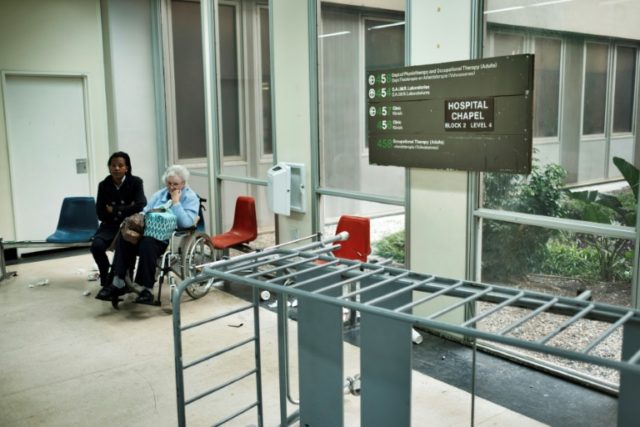Pretoria (AFP) – South Africa on Thursday unveiled details of a new universal health insurance plan aimed at improving healthcare for the poor in one of the world’s most unequal nations.
A new National Health Insurance (NHI) scheme will use compulsory contributions from employers and employees and is expected to be operational by 2026, Health Minister Aaron Motsoaledi told a news conference.
He said the changes were necessary to close the gap between wealthy South Africans, who have access to excellent private care, and the poor who are dependent on often understaffed and under-resourced public facilities.
“All South African citizens must have access to private and public health care,” said Motsoaledi.
“The cost of private health care is out of reach.”
Just 8.8 million of South Africa’s 56 million people have access to private medical care with the rest entirely dependent on the state.
Motsoaledi said South Africa, the continent’s most industralised nation, spends 4.5 percent of GDP on private care for 16 percent of people while the public sector spends 4.2 percent of GDP looking after the other 84 percent.
One of the biggest changes would be the linking of the public and private systems for the first time.
The law, if passed, would establish a fund which would enable all South Africans to purchase health care services from either the public or private sector.
It remains unclear if all of the scheme’s costs would be entirely met by the scheme or would need to be subsidised by the treasury.
“The rich must subsidise the poor, the young must subsidise the old and the healthy must subsidise the sick,” Motsoaledi said.
The minister said that would require “massive reorganisation” of both public and private care as he presented a series of bills to be debated by parliament.
The cost of the new scheme will likely fall on taxpayers, employers and the private medical insurance industry.
“We have privatised health care more than the US,” said Motsoaledi, adding that South Africa had been “completely out of sync with the rest of the world”.
The dramatic shakeup comes at a time of intense crisis in the public healthcare system which is battling doctor shortages, industrial turmoil and growing waiting lists.
“(We are) very much alive to the problems of poor quality and lack of efficiency in the public health care system,” said Motsoaledi.
– ‘Attempt to cover up failures’
The minister said last he did not expect enacting his plan to be plain sailing.
“In the same way the land issue is raging all over the country‚ NHI is going to rage in a similar way,” the minister told parliament last week referring to debates over the unequal distribution of land among different racial groups.
The main opposition Democratic Alliance party have attacked Motsoaledi’s scheme as “simply …not feasible”.
“The (ruling) African National Congress has laid waste to the South African health care system, and the NHI is just a shoddy attempt to cover up their failures,” it said in a statement.
But private health insurance companies and doctors have cautiously welcomed the proposed scheme.
“We support the intention and action aimed at ensuring that the greater population of the country receives quality healthcare,” said Ali Hamdulay, chairman of the Board of Healthcare Funders which represents 45 health insurance firms in South Africa.
The head of the South African Medical Association, Mzukisi Grootboom, told AFP the country “needs a national health service so that people can access health care that is of quality and are not exposed to the high cost currently prevalent in the country”.

COMMENTS
Please let us know if you're having issues with commenting.